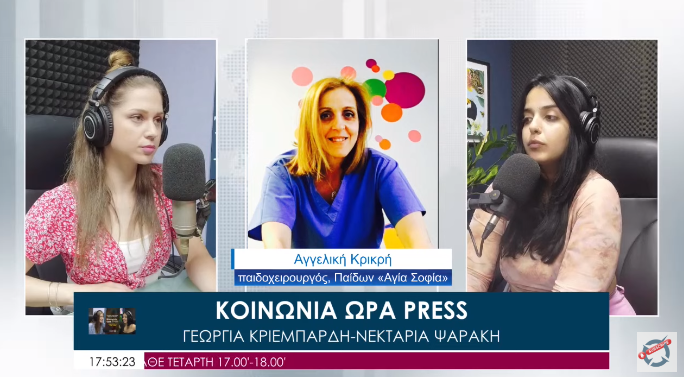
A healthcare system in crisis
Krikri explains the dire staffing shortages exacerbating the crisis: “Agia Sophia should have 24 anaesthesiologists, but due to budget cuts and economic policies, we were allocated only 17. Currently, we have just 13 serving, with two on necessary leave. We are on duty day after day, without adequate rest in a high-intensity job.”
The situation is equally grim at “Aglaia Kyriakou,” where anaesthesiologists have announced the suspension of surgeries starting May 27th. Krikri notes that the organisational charts in hospitals have been slashed based on austerity measures, not scientific needs.
Impact on children
“This is devastating for our children,” says Krikri. “We have received complaints for years, and we are at a breaking point. Every time we have to tell a parent their child will not be operated on time, there is no scientific justification. Surgical problems are always urgent. Delays can lead to worsening conditions and more complicated diseases.”
The Minister of Health has recently taken to criticising health workers, referring to them as “kaffirs” and “little people” and suggesting that the decision to suspend surgeries is driven by “a hard core of left-wing trade unionists.” Krikri vehemently denies these claims: “We are not blackmailers or politicians. We have exceeded safety limits to operate. The hospital has been barely holding on since the pandemic, and we are severely overworked.”
Operational challenges
Krikri outlines the requirements for running operating rooms: “About 10 people are needed for each operation—not just the surgeon, assistant, nurse, and anaesthetist. Even if we hired more anaesthesiologists tomorrow, we still couldn’t meet the demands of operating six tables as we did 5-6 years ago. Currently, we are only operating 2-3 rooms daily for emergencies, and the waiting list keeps growing.”
Staggering numbers
The waiting list at “Agia Sophia” has reached 2,500 children, with another 1,000-1,500 at “Aglaia Kyriakou.” Krikri explains the backlog: “I operate on four children a month, but during that time, 15 new cases are added to the list. If we cannot develop surgical tables at a normal rate, we cannot operate.”
A flawed system
Krikri criticises the government’s narrative that positions are advertised but doctors don’t want to apply. “The state doesn’t follow its own laws. When a doctor retires, their position should be advertised six months in advance, but this hasn’t happened in the last 10 years. They announce paediatric anaesthesiologist positions in joint announcements with all anaesthesiologists in Greece. Paediatric care is more challenging and less attractive, so these positions remain unfilled. Who would want a job where they have to do the work of 10 people?”
She also questions the efficiency of the hiring process: “The law mandates that a position should be advertised, applications reviewed within 20 days, and candidates called for interviews within another 20 days. This process should take no more than three months. Since February, after pressure to announce positions, why has the process not been completed four months later?”
The human cost
Krikri expresses deep concern for the children awaiting surgery: “I am ashamed to tell a parent to pay €3,000 for an inguinal hernia operation for their child. We try to do our best, but people on the waiting list have been conditioned to wait. This is not normal.”
______________________________________________
Are you seeking news from Greece presented from a progressive, non-mainstream perspective? Subscribe monthly or annually to support TPP International in delivering independent reporting in English. Don’t let Greek progressive voices fade.
Make sure to reference “TPP International” and your order number as the reason for payment.